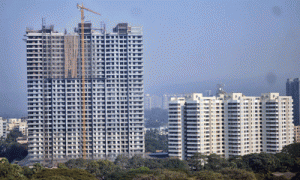 Track2Realty: Uncertainties prevailing in the real estate market since the past few years have resulted in the country no longer being an attractive investment destination for international investors, says a recent survey.
Track2Realty: Uncertainties prevailing in the real estate market since the past few years have resulted in the country no longer being an attractive investment destination for international investors, says a recent survey.
Bangalore, Mumbai and Delhi, which are the top three realty markets in the country, have sharply slipped to 19th, 20th and 21st positions respectively in the list of 22 investment destinations in the Asia Pacific region, the survey ‘Emerging trends in real estate 2013’ by the Urban Land Institute and PricewaterhouseCoopers (PwC) said.
In 2012, these three cities were placed at the 10th, 15th and 12th position respectively in this study.
“The uncertainties in the real estate market is holding back international investors from investing in the country as they were doing in the last few years. Given the current scenario, where there is little or no clarity on policies, foreign investors will continue to adopt a cautious approach,” PwC India Executive Director Gautam Mehra said.
According to the survey, Bangalore is perceived to be a mature market and has demonstrated fairly stable prices and reasonable absorption trends.
However, the report notes that the Southern metro’s over-reliance on the sluggish global IT industry translates into low growth potential in the medium term.
The financial capital Mumbai is plagued with over- supply across asset classes, resulting in record levels of vacancy and stagnant yields, it says.
The report, however, has cast a positive light on Delhi and the surrounding NCR area in view of the expected master development plans for Delhi,
Gurgaon and Noida, are indicating a flight of capital from the Western and Southern regions to the North in the medium-term.
However, the report paints a rosy picture going forward. It says despite various issues plaguing the sector, there is hope ahead especially after the recent decision to permit foreign investment in multi-brand retail, Mehra said.
“The favourable demographics and inherent but latent demand continue to be redeeming factors. Several micro-markets continue to provide suitable investment opportunities for investors and end-users alike,” he said, adding the need of the hour is to deliver focused political and economic reforms.
“While the domestic realty sector may currently be grappling with certain socio-political and economic issues, particularly rising inflation and interest rates, uncertainty on fiscal policies, and subdued interest from opportunistic investors, there appears to be light on the horizon,” he says.
From a regulatory standpoint, the introduction of the alternative investment fund (AIF) regime seeks to streamline and regulate the myriad of investment schemes, in a bid to boost investor confidence, he says.
“One area that is yet to be developed is the real estate investment trust (REIT) regulation, which can provide an additional exit route for investors and enable retail money to be channelised into the sector through a regulated network,” Mehra concludes.





